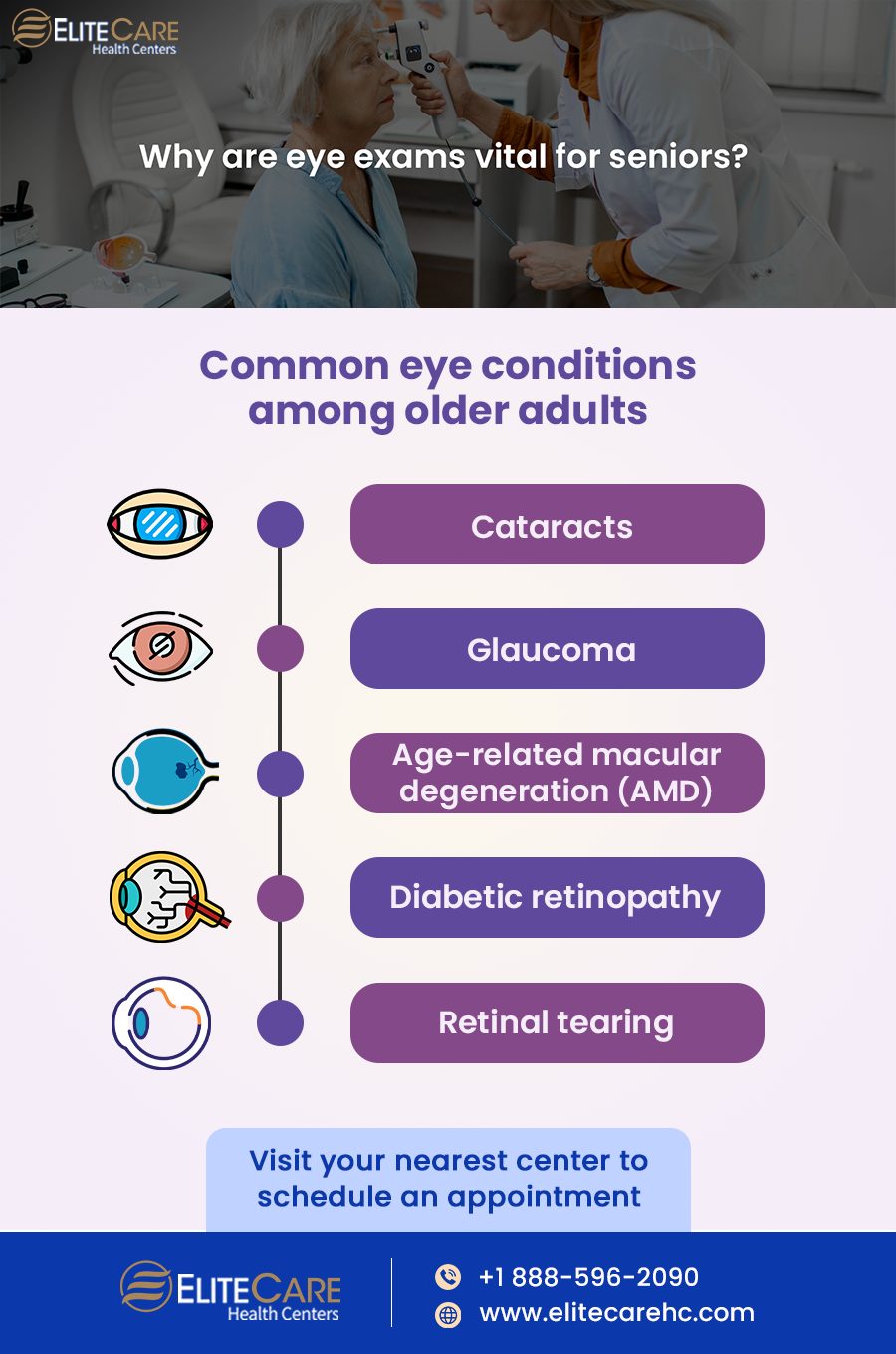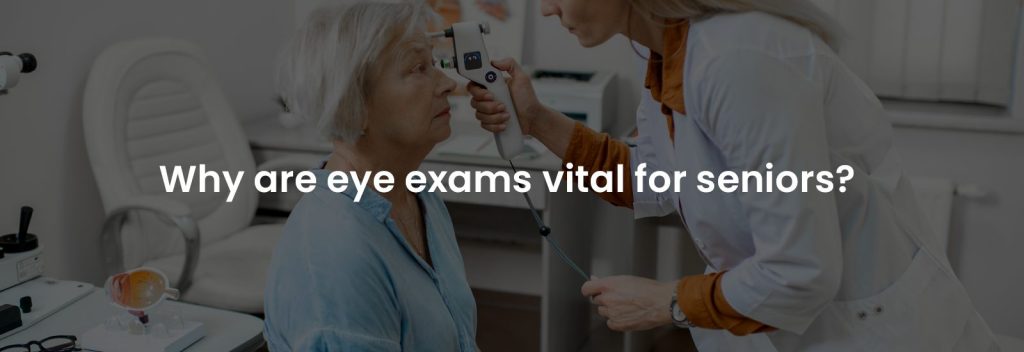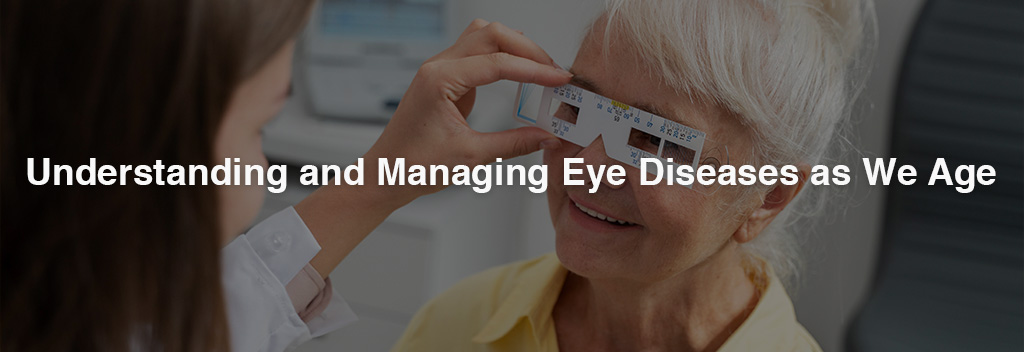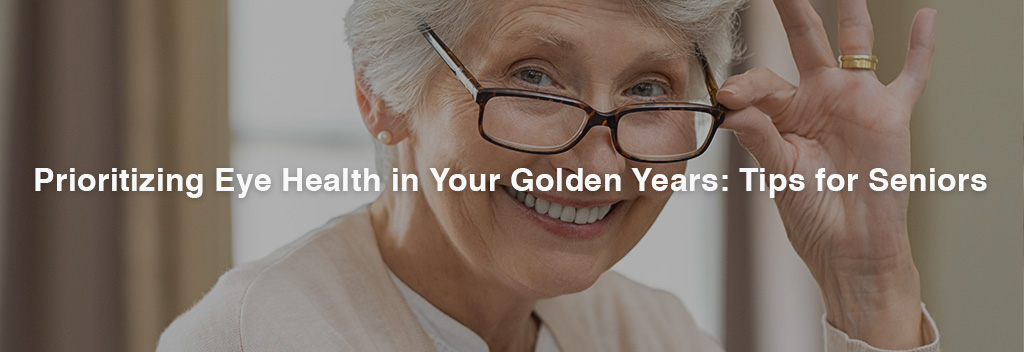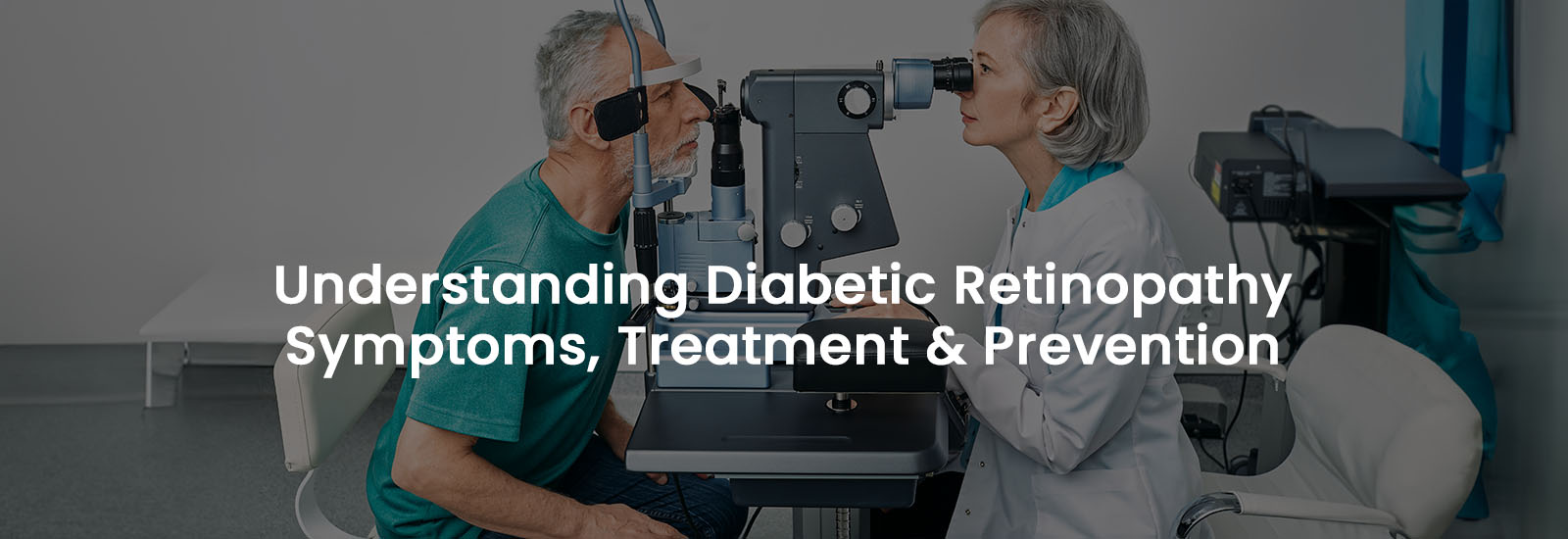
It is common to experience changes in vision as we age. Vision issues can snowball into more critical problems and hinder a senior’s ability to live a good quality and self-sufficient life. Therefore, getting a regular eye exam is vital to help spot other health problems such as high blood pressure and diabetes.
According to CDC (Centers for Disease Control and Prevention), more than 7 million Americans suffer from vision impairment, including 1 million who are blind, or have lost vision. Another 93 million US adults are at risk of severe vision loss. These numbers are only expected to rise because of the rise in chronic diseases and the aging population. These statistics emphasize the importance of regular eye exams for seniors.
Check with an eye doctor if you experience any of the following issues:
- Redness of the eye(s)
- Reduced vision
- Double vision
- Pain in the eye(s)
- Presence of floaters (appearance of minute specks floating before your eyes)
- Halos around the lights
What eye conditions can be detected during an eye exam?
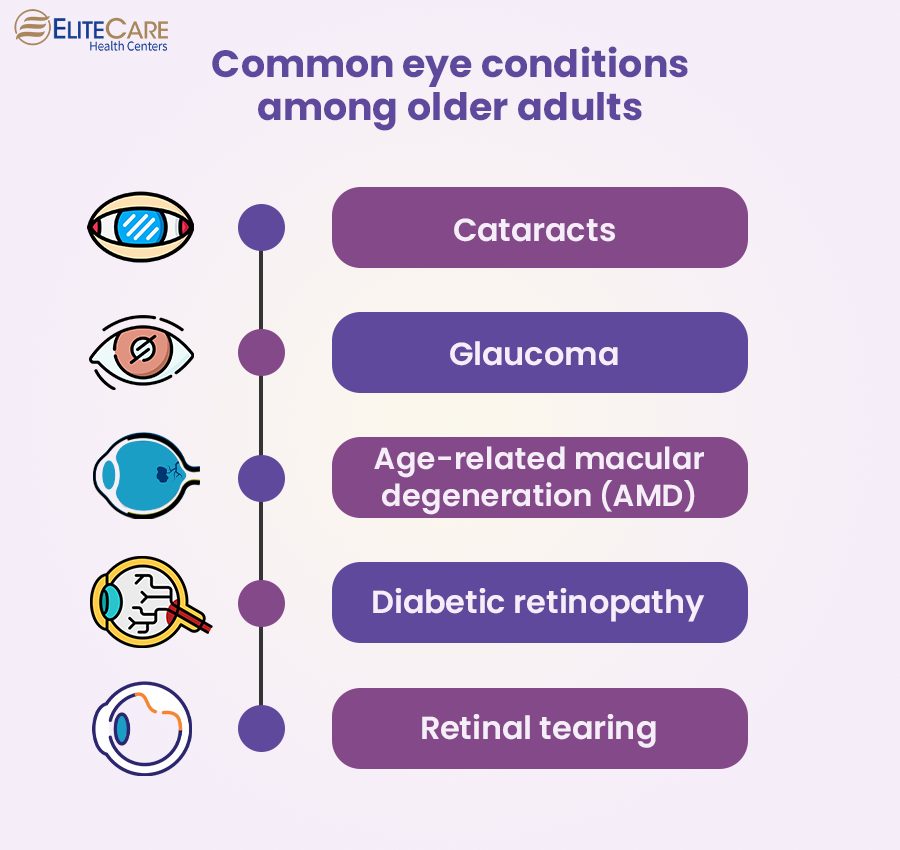
The most common eye conditions among older adults are as follows:
- Cataracts: Cataract is a condition that causes clouding of the eye lens. This condition can cause a reduction in the ability to see in dim lights (such as when driving at night), dulling of the colors seen around, and increased sensitivity to glare. Your doctor can detect early cataracts during your eye exam and can advise you to get them treated accordingly. Cataracts can usually be corrected with surgery which can be performed in just 30 minutes.
- Glaucoma: Glaucoma is a term used to define an array of diseases that damage the optic nerve in the eye and can lead to loss of vision. Glaucoma is often painless and has no obvious symptoms until there is a considerable loss of peripheral vision. If left untreated, Glaucoma can lead to complete blindness. People with a family history of Glaucoma and seniors are at a higher risk of developing this disease but if it’s found early, it can be cured.
- Age-related Macular Degeneration (AMD): This condition of the eye can affect the macula (the center of the light-sensitive retina located at the back of the eye). AMD can cause central vision loss, affecting the ability to see colors and fine details.
- Diabetic Retinopathy: This condition is found in people suffering from diabetes as a result of continuous damage to the minute blood vessels that sustain the retina and can even cause blindness.
- Retinal Tearing: Seniors are at high risk for small tears in the inner lining of the eye which can lead to fatal retinal detachment or other conditions that can impact vision.
Read More: Keys to Healthier Eyes for Seniors
What to expect from an eye exam
According to The American Academy of Ophthalmology, it’s critical and hence recommended to have a complete eye exam every year or two after the age of 65. An eye exam can detect most if not all these problems early on.
Listed below are some tests that you can expect to encounter during your senior eye exam:
- Dilated Pupil Exam: Let your doctor view your optic nerve and retina.
- Preliminary Tests: These are conducted to evaluate color vision, eye muscle movements, depth perception, and pupillary light response.
- Refraction: This part of the eye exam is to determine your most favorable optical prescription to provide sharp and clear vision at all distances.
- Visual Acuity Test: The visual acuity test in the eye exam measures how well your eyes can see distant and near objects.
- Digital Retinal Imaging: This test provides a colored, high-resolution picture of your retina, the blood vessels at the back of your eye, and your optic nerve.
- Ophthalmoscopy: This part of the eye exam facilitates a magnified examination of the back of your eye under a bright light to assess your eye health including cataracts, optic nerve damage, and retinal detachment.
- Tonometry (eye pressure test): This part of an eye exam is to assess the amount of pressure within your eye to dismiss glaucoma.
- Slit-lamp Exam: This part of the eye exam offers a magnified view of the structures of your inner and outer eye including the eyelids, tears, tear ducts, pupil, cornea, lens, retina, and iris.
How to take better care of your eyes
Follow these measures for better eye health:
- Get a yearly eye exam: It is crucial to prioritize your eye exam and make regularly scheduled appointments with your eye doctor, so he or she can guide you on how to deal with vision issues that come with aging.
- Eat right: Nutrition is just as significant as regular eye exams when it comes to eye health. Eat a diet rich in vitamin A and leafy greens.
- Use UV-protected shades: Look for sunglasses that block out 99-100% of UV-A and UV-B rays from the sun.
- Check your family history: Some eye problems can be hereditary so make it a point to check your family history and inform your doctor about it.
- Quit smoking: Smoking significantly increases the risk of developing an eye disease which can ultimately cause vision loss.
- Keep a considerable distance from phones and television screens: It is wise to keep a distance of at least 16 to 18 inches from phones, computer screens, or television screens for optimal eye health. Also, try to blink regularly to avoid dry and itchy eyes while looking at the screen.
- Using proper lighting when reading: Reading in a well-lit space doesn’t cause strain on the eyes, which can prevent or reduce eye damage.
Eyes are not just windows to the soul, they’re also a tool you use every single day. Good eye health is imperative to a senior’s well-being. You should undergo an eye exam regularly as well as follow healthy practices to care for your vision. Any eye-related diseases should be detected and treated as early as possible. It is vital for seniors to have access to reliable eye care services that deliver effective results.
If you’re looking for comprehensive care for your eye health from the best primary doctors in Florida, we have some of the leading geriatric primary care physicians working on our team. Get personalized care from trained professionals at our center near you. Call 1-888-596-209 to schedule an appointment.
